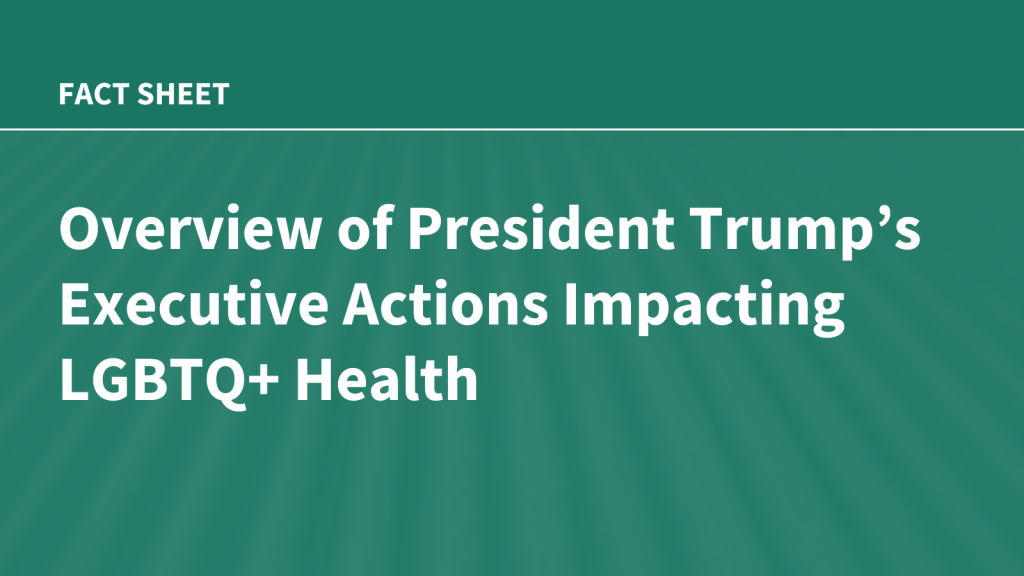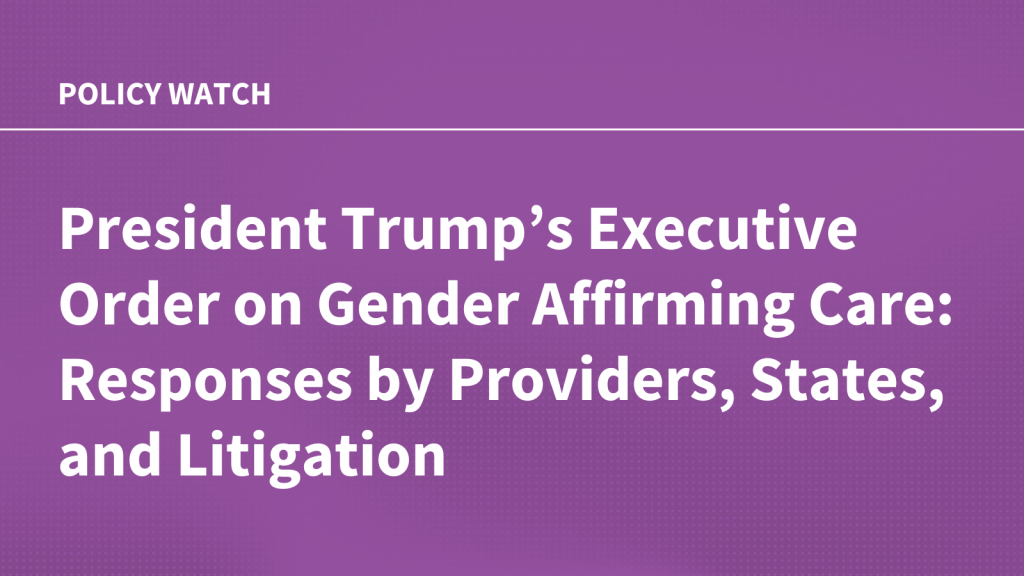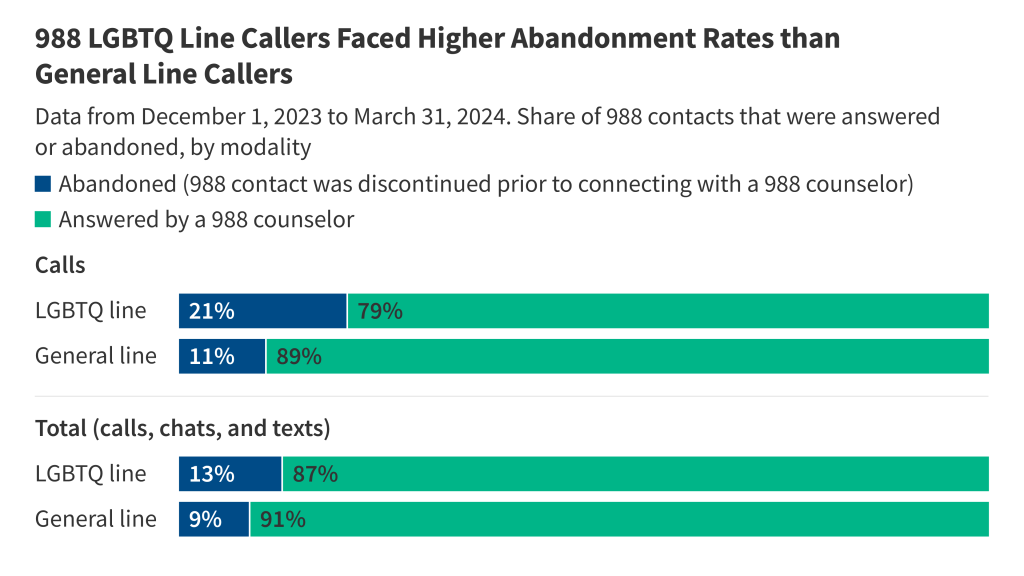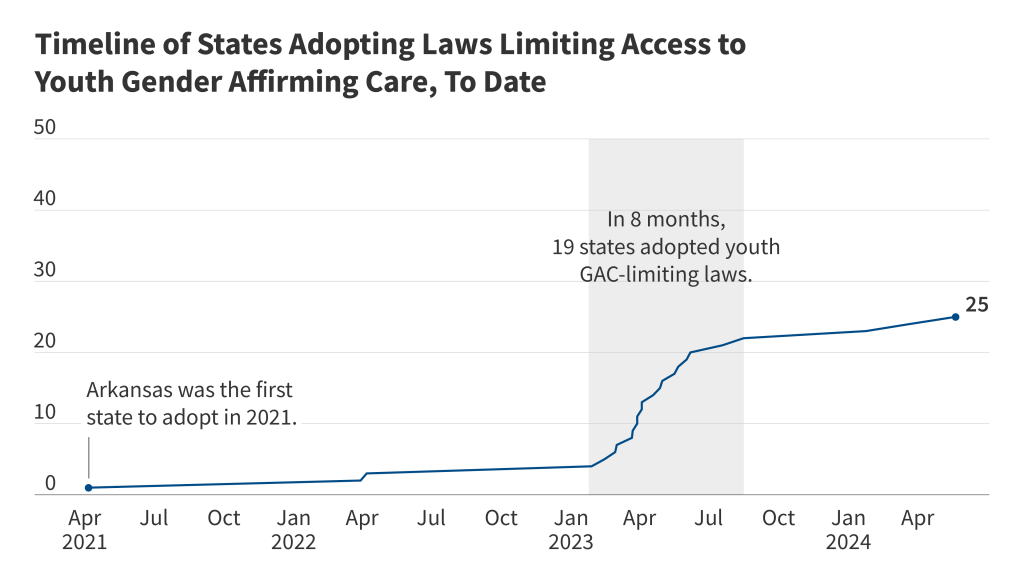
The independent source for health policy research, polling, and news.
LGBTQ Health Policy

10 Key Data Points About the Experiences of LGBT+ Women and Their Access to Care
Health disparities and health access-related challenges persist among the LGBTQ+ community. While there have been various state and federal efforts over the last several years to address equity in the LGBT+ community, including with respect to health care access, nondiscrimination, and data collection, recent Trump Administration policy actions could reverse these developments. This brief presents key data points on the health care experiences of LGBT+ women from the KFF Women’s Health Survey, a nationally representative survey of women in the United States
What are the Implications of the Skrmetti Ruling for Minors’ Access to Gender Affirming Care?
This policy watch examines the June 18, 2025 Supreme Court ruling upholding a Tennessee ban on gender-affirming care for transgender youth in the case of the United States v. Skrmetti, how it will affect access in other states with similar bans, and other implications.


Growing Uncertainty About the Future of the 988 Suicide and Crisis Lifeline’s LGBTQI+ Service
The future of the 988 LGBTQI+ service is uncertain under the Trump administration. Since 2022, the service has provided specialized crisis care for tens of thousands of LGBTQI+ youth and young adults, who experience higher rates of suicidal thoughts and attempts compared to peers. Since its launch, the resource has significantly increased its footprint.
Get the Latest Data on the 988 LGBTQI+ Service.
New Rule Proposes Changes to ACA Coverage of Gender-Affirming Care, Potentially Increasing Costs for Consumers
In this brief, KFF examines how a new proposed rule, if finalized, could change how certain insurance plans cover gender-affirming care. The proposal would prevent Affordable Care Act coverage from including gender-affirming care as an essential health benefit, which could lead insurers to drop coverage or shift costs to individuals and states.
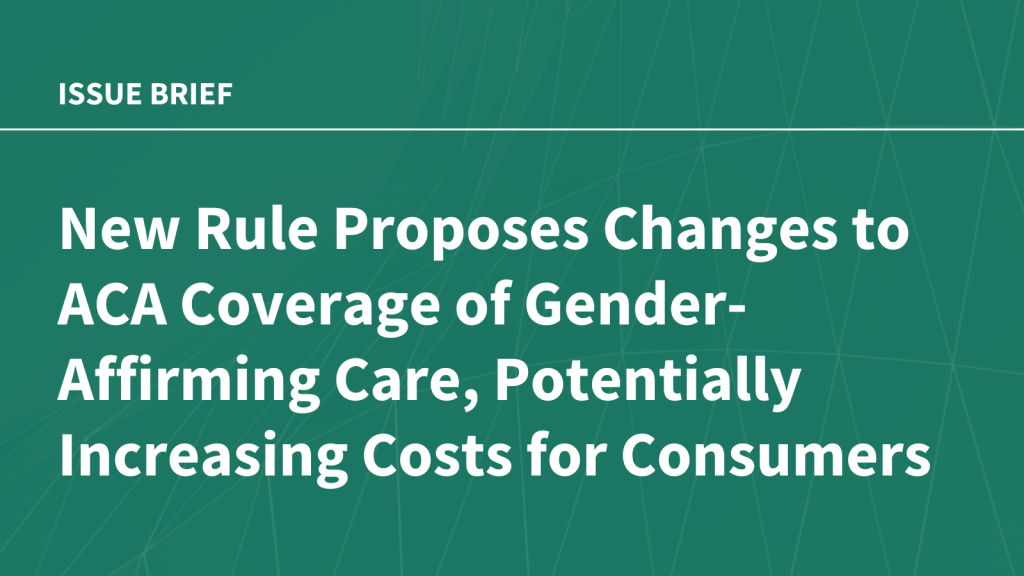
An Overview of President Trump’s Executive Actions Impacting LGBTQ+ Health
This guide highlights President Trump’s Executive Actions that directly address or affect health programs, efforts, or policies designed to meet the health needs of LGBTQ+ people. These actions cover a range of federal agencies and policies and, in general, seek to eliminate federal diversity initiatives, narrowly define sex and sex-based protections, and limit access to gender affirming care. The guide describes when the Executive Action was first taken, its potential impact, and examines follow-up actions, including litigation efforts; it will be updated to reflect additional actions and developments as needed.
President Trump’s Executive Order on Gender Affirming Care: Responses by Providers, States, and Litigation
This Policy Watch reviews the key provisions of President Trump’s Executive Order that aim to restrict youth access to gender affirming care and examines state and legal responses.
What to Know Ahead of the Supreme Court Case on Youth Access to Gender Affirming Care
This brief provides background on gender affirming care and state bans, explains the legal challenge to the Tennessee law, and explores the potential Supreme Court ruling and impact on access across the country.
The Proliferation of State Actions Limiting Youth Access to Gender Affirming Care
Over the past 18 months, there has been a rapid increase in the number of states that have enacted laws and other policies that prohibit or restrict minor access to gender affirming care.

Utilization of the 988 Suicide & Crisis Lifeline’s LGBTQ Service
This analysis examines performance metrics to assess use of 988’s LGBTQ service compared to 988’s general service usage, from December 2023 to March 2024.
Has Marriage Equality for LGBTQ People Impacted Access to Domestic Partner Health Benefits?
In this data note, based on KFF’s 2023 Employer Health Benefit Survey, we assess the current status of domestic partner health insurance benefit offerings for same-sex spouses.
Trans People in the U.S.: Identities, Demographics, and Wellbeing
The KFF/Washington Post Trans Survey is the most in-depth, representative survey of transgender adults living in the United States. Building on that report, and using the survey data, this analysis provides the most comprehensive representative profile of trans Americans ever complied, while also offering insights on their experiences in the health care system.
KFF/The Washington Post Trans Survey
The KFF/Washington Post Trans survey is the most in-depth representative survey of the life experiences of transgender adults in the United States, including how trans people define themselves, their childhood experiences, their gender transitions, and the hostility and discrimination they face.

Mental Health Care Needs and Experiences Among LGBT+ People
In this report, we examine LGBT+ people’s needs for and experiences accessing mental health care by analyzing data from a nationally representative 2022 KFF survey with a large sample of LGBT+ adults.
Youth Access to Gender Affirming Care: The Federal and State Policy Landscape
This brief explores the current state and federal policy landscape regarding gender affirming services for youth and the implications of restrictive state laws.

Mpox One Year Later: Where is the U.S. today?
This brief provides an overview of the impact of mpox in the United States one year after a case of was identified in the United States and the federal response to date, and discusses the future outlook.
Half of All U.S. States Limit or Prohibit Youth Access to Gender Affirming Care
As of May 21, 2024, our tracking shows that half of all U.S. states have enacted a law that prohibits or limits youth access to gender affirming care. This issue brief explores the milestone and the progression in lawmaking across the country.
